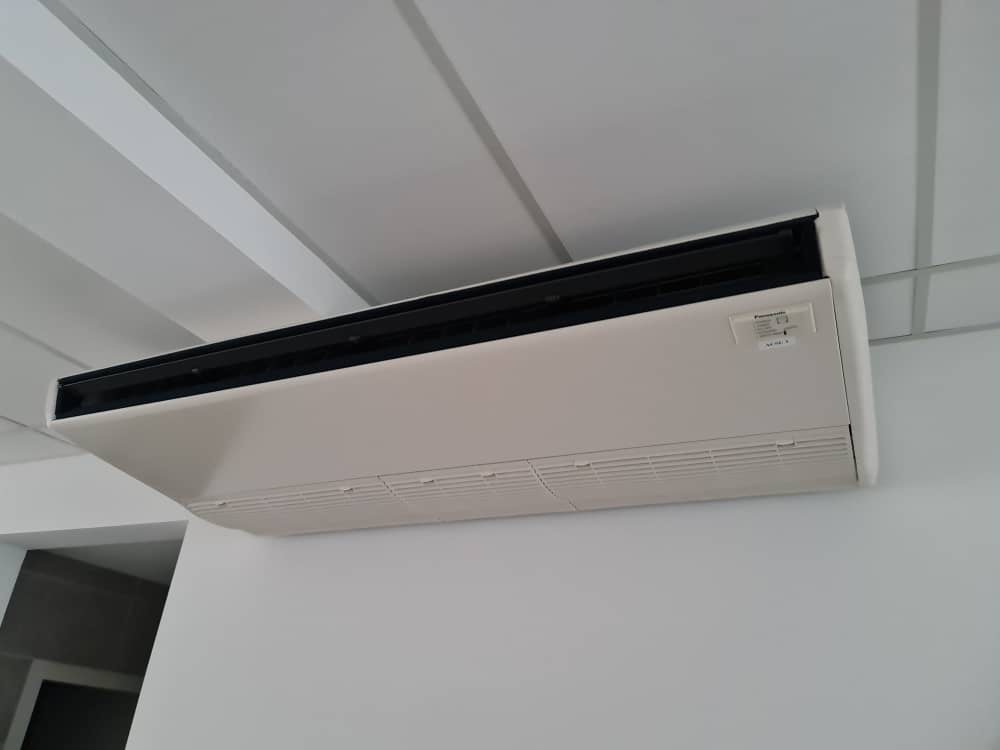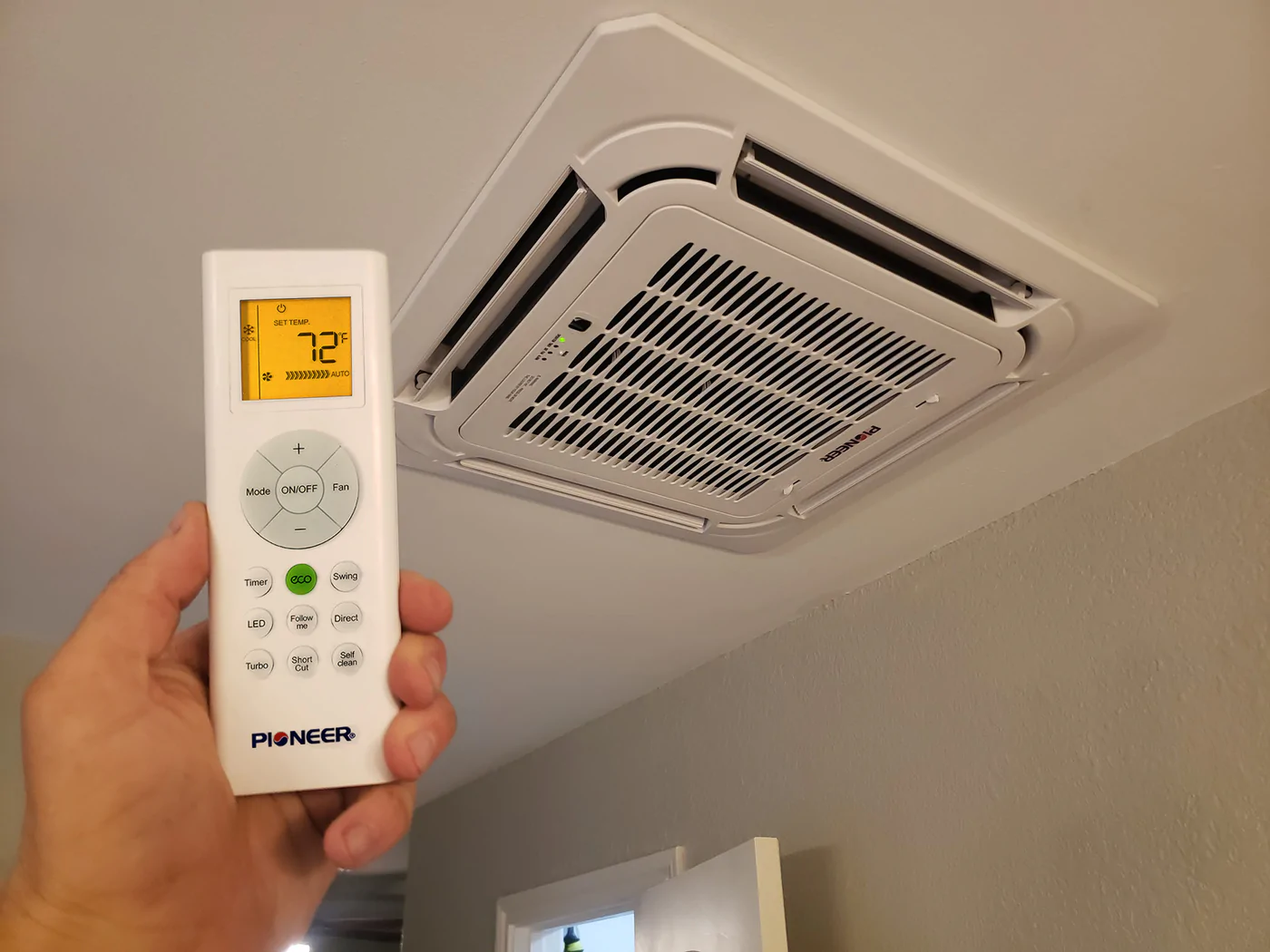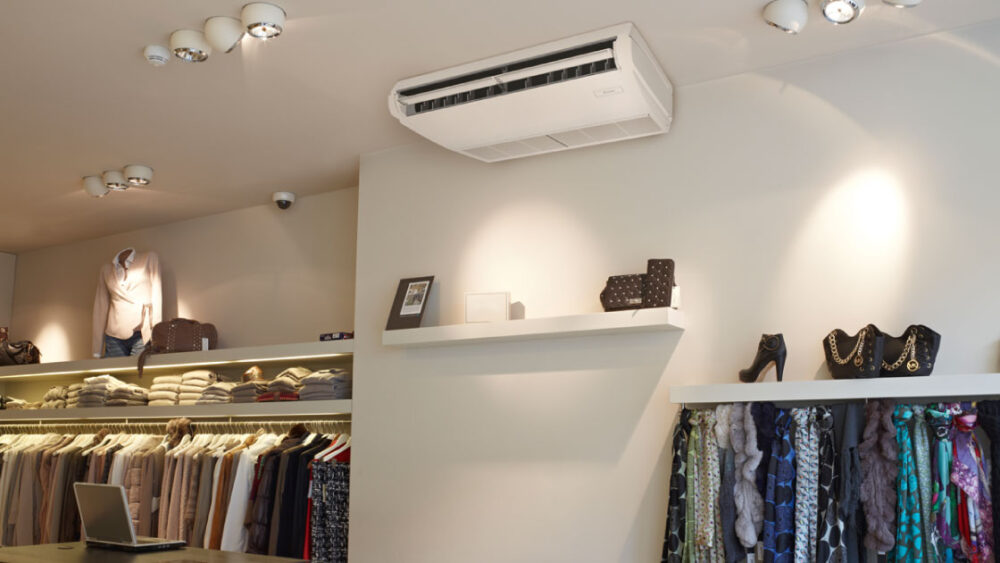Most people start looking for ways to cool down when the weather starts to heat up. If you’re in the market for a new air conditioner, an under-ceiling air conditioner might be the perfect option! In this blog post, we will discuss some of the critical factors you need to consider when choosing an under-ceiling air conditioner. Keep reading to learn more!
What factors should you consider when choosing an under-ceiling air conditioner for your home?

When choosing an air conditioner for your home, there are a few important factors to consider. One is the size of the unit. Make sure to choose a unit that is appropriately sized for the room or area you wish to cool. Another factor to consider is the type of air conditioner. There are three main types: central, window and portable. Central air conditioners are generally the most efficient, but they require professional installation. Window units are less expensive and easier to install, but they can be less effective and may not fit all window sizes. Portable units are the most versatile, but they can be more expensive to operate. Finally, consider the features you need. Some units come with timers, remote controls and energy-saving settings. Choose the unit that best meets your needs and budget.
How do you size an under-ceiling air conditioner for your home’s needs?
When you’re trying to figure out how to size an under-ceiling air conditioner for your home, there are a few things you need to take into account. First, you need to know the square footage of the room or rooms you want to cool. Secondly, you need to consider the ceiling height of the room or rooms in question. And finally, you need to decide what sort of temperature you want the room or rooms to maintain. With those three factors in mind, you can start shopping for an air conditioner that will meet your needs. If you have a smaller room with a shorter ceiling, you won’t need as much cooling power as you would for a larger room with a taller ceiling. And if you want the room to be cooler than average, you’ll need an air conditioner with more BTUs (British Thermal Units) than if you’re just looking for a comfortably cool space. Once you’ve taken all of these factors into account, shopping for an air conditioner will be a breeze.

What are some of the features and benefits of under-ceiling air conditioners?
One feature of under-ceiling air conditioners is that they save space. By mounting the unit on the ceiling, it frees up valuable floor space in your room or office. This can be a major benefit if you’re working with limited square footage. In addition, under-ceiling air conditioners tend to be more energy-efficient than other types of units. This is because they don’t waste energy by cooling the area around the unit, as well as the space inside the unit. As a result, you can save money on your energy bills each month. Finally, under-ceiling air conditioners are often very quiet, making them ideal for use in offices and other places where noise levels need to be kept to a minimum.
How much does an under-ceiling air conditioner cost, on average and where can you buy one?

An under-ceiling air conditioner, also known as a ductless mini-split, can cost anywhere from $600 to $2500, depending on the brand, size and features. Installation costs will vary depending on the complexity of the project, but it is typically between $500 and $1000. Under-ceiling air conditioners can be purchased from a variety of retailers, both online and in-store. Some of the most popular brands include LG, Mitsubishi and Fujitsu. When purchasing an under-ceiling air conditioner, it is important to consider the size of the unit as well as the features that are most important to you. For example, some units come with a built-in heater, while others have an automatic shut-off feature that kicks in when the room reaches a certain temperature. With so many options available, there is sure to be an under-ceiling air conditioner that meets your needs and budget.
Conclusion
When it comes to choosing the best air conditioner for your home, you have a few different options. Central air conditioning is one popular choice, but another option to consider is an under-ceiling air conditioner. Under-ceiling air conditioners offer several benefits over central AC systems, such as being more affordable to install and operate, taking up less space in your home, and being easier to maintain. If you’re thinking of installing an under-ceiling AC unit in your home, here are six factors you’ll want to keep in mind.
- Size: The size of the unit you need will depend on the size of your home and how many rooms you want to cool. You can use this sizing guide to help determine what capacity unit you’ll need.
- Climate: If you live in a hot climate, you’ll need a higher capacity unit than if you live in a cooler climate.
- Features: Many under-ceiling AC units come with features like timers and automatic shut-offs that make them easy to use. Other features to look for include variable fan speeds and filters that can be cleaned easily.
- Cost: Under-ceiling AC units tend to be more affordable than central AC systems. You can expect to pay between $800 and $2000 for an installed unit, depending on the size and features of the unit.
- Installation: Under-ceiling AC units must be installed by a professional HVAC technician. This installation typically costs around $500-$700.
- Maintenance: Like all air conditioners, under-ceiling AC units require regular maintenance to run effectively and efficiently. Cleaning or replacing the filter every 3 months is recommended. -If you’re considering purchasing an under-ceiling air conditioner for your home, these are some things worth keeping in mind before making your decision. Under-ceiling ACs offer several benefits over traditional central AC systems, including lower cost of installation and operation, smaller form factor, ease of use and reduced maintenance requirements.
If you have any questions about whether or not a ceiling ac would be right for your home, please don’t hesitate to reach out to our team for advice.



